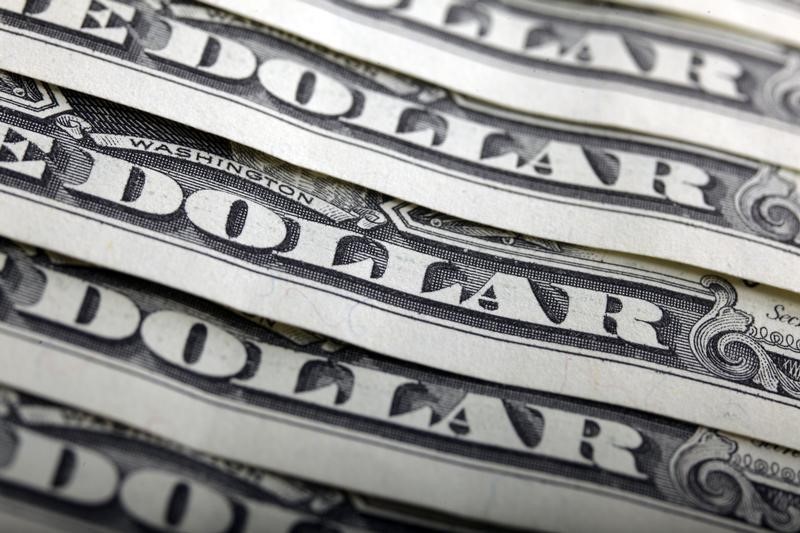Investing.com - The dollar remained broadly lower against a basket of other major currencies on Thursday, after data showed that U.S. retail sales dropped unexpectedly last month although a separate report showed that U.S. jobless claims fell more than anticipated last week.
The Commerce Department reported that retail sales fell 0.6% in February, the third consecutive monthly decline. Economists had forecast in increase of 0.3%.
Core retail sales, which exclude automobiles, gasoline and food were flat following a 0.1% decline in January.
Another report showed that U.S. import prices rose 0.4% in February, snapping seven months of declines, but the report indicated that inflation pressures remained muted due to lower petroleum prices.
At the same time the Labor Department reported that the number people filing new claims for unemployment benefits fell by 36,000 to 289,000 last week, indicating that the recovery in the labor market is continuing to strengthen.
The U.S. dollar index, which measures the greenback’s strength against a trade-weighted basket of six major currencies, was down 0.41% to 99.23.
EUR/USD climbed 0.69% to 1.0620, easing off a 12-year low of 1.0495 hit overnight.
The euro was still pressured lower by the European Central Bank’s trillion-euro stimulus program.
The single currency rebounded against the dollar earlier Thursday as the dollar took a breather from a rally sparked by the diverging monetary policy stance between the Fed and central banks in Europe and Japan.
The dollar was lower against the yen and the Swiss franc, with USD/JPY shedding 0.17% to 121.24,while USD/CHF dropped 0.64% to 1.0024.
Sterling slipped lower, with GBP/USD down 0.13% to 1.4907.
In a report, the U.K. Office for National Statistics earlier said that the country's goods trade deficit narrowed to £8.41 billion in January from £9.93 billion in December, whose figure was revised from a previously estimated deficit of £10.15 billion.
Economists had expected the goods trade deficit to narrow to £9.7 billion in January.
AUD/USD rallied 1.55% 0.7713, off Wednesday's six-year lows of 0.7558, while NZD/USD jumped 1.62% to 0.7410.
The kiwi strengthened after the Reserve Bank of New Zealand held its benchmark interest rate at 3.50% earlier Thursday and signalled that borrowing costs should remain unchanged through 2017.
Elsewhere, USD/CAD retreated 0.49% to trade at 1.2684.
